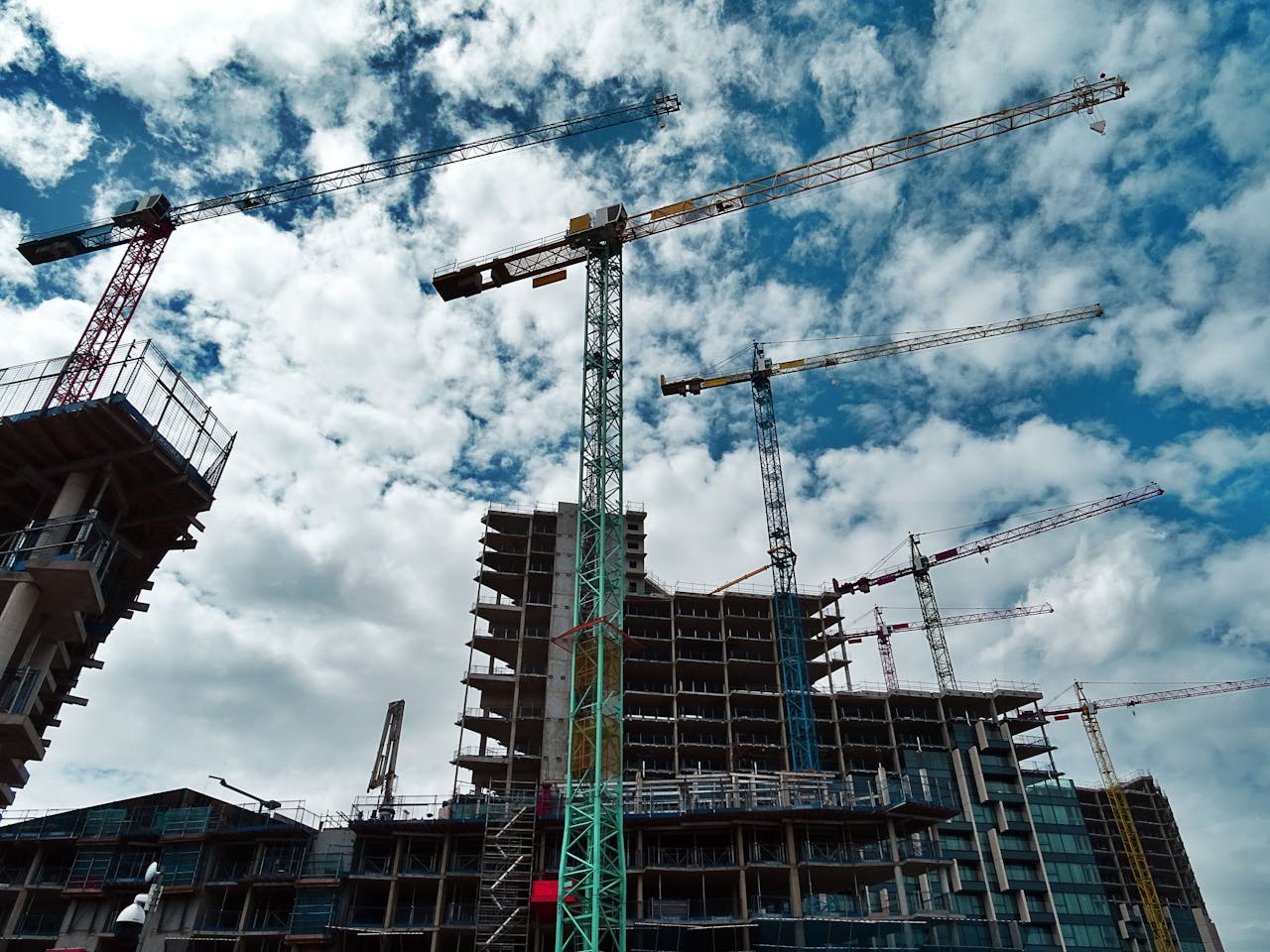Imagine a busy construction site. Workers are everywhere, cranes reach into the sky, and the blueprint folders are passed around with care. The person responsible for making sure all of this happens smoothly is the construction manager. Construction management is about coordinating the work, the people, and the materials so that everything comes together on time and within budget. It’s like piecing together a puzzle, where each part plays an important role. A skilled construction manager guides this process, ensuring that projects don’t just happen—they succeed.
The construction environment in places like Ontario isn’t just about hard hats and heavy machinery. It’s about mastering a set of skills that ensure projects are efficient, safe, and successful. These skills range from working with people to solving complex problems quickly. If you think the secret to great construction management is just technical know-how, think again. It’s also about being a good communicator, a leader who can motivate, and a planner who thinks ahead. Here, we’ll explore some skills that every construction manager should have.
Key Communication Skills
One of the most important skills for any construction manager is communication. Picture a team working on a project without talking to each other—disasters would be hard to avoid. Getting everyone on the same page can be challenging, but it’s necessary to keep the project moving in the right direction.
Here’s why good communication matters:
– Avoiding Misunderstandings: When team members clearly understand their roles and tasks, confusion and errors are less likely.
– Streamlining Processes: Efficient communication can speed up decision-making and problem-solving.
– Strengthening Teamwork: When everyone feels heard and informed, teamwork generally improves.
Take, for instance, a construction site facing unexpected weather delays. A construction manager who communicates promptly, using simple visuals or quick meetings, can adjust plans and inform everyone on what to do next. This ensures the team can focus on solutions rather than dwelling on the problems.
Effective strategies often include regular updates using brief meetings or bulletins, ensuring everyone knows what to expect. Clear and direct emails can outline the daily goals and share any changes quickly. These help everyone stay informed and involved, reducing the chances of things going unnoticed.
With the right communication skills, challenges are dealt with proactively rather than reactively. A manager who speaks clearly and listens actively makes sure the project stays on track and that team members feel valued. Such skills are invaluable, not just in managing tasks but in building a team that trusts and works well together.
Leadership and Team Management
Great leaders can turn a good construction project into an amazing one. Leadership is about more than just giving orders; it’s about motivating the team, fostering an environment where everyone feels heard, and handling challenges. In construction, a strong leader makes sure the team not only knows the plan but believes in it. When a team feels respected and valued, productivity naturally improves.
Building effective leadership means focusing on:
– Motivation: Encouraging the team with praise for hard work or milestone achievements.
– Delegation: Assigning tasks based on team members’ strengths.
– Conflict Resolution: Quickly addressing and resolving disputes to maintain a positive work environment.
Imagine a site where weather conditions have affected progress. A good leader reassesses the situation and brings the team together to discuss new strategies. By asking for input and valuing their expertise, the leader not only finds a solution but also boosts team morale. Developing these leadership skills ensures that a construction manager can handle the ups and downs with confidence.
Project Planning and Organization
Planning in construction is akin to crafting a detailed map. Without it, projects can drift off course. An organized plan helps keep everything in check, like budgets, materials, and deadlines. With every piece in its place, a project is more likely to succeed.
To keep things organized, consider these steps:
1. Create a Clear Timeline: Break down the project into phases with realistic deadlines.
2. Prioritize Tasks: Identify which tasks need immediate attention and which can wait.
3. Allocate Resources Wisely: Make sure the right equipment and people are where they’re needed.
Picture a construction project for an institution in Ontario. The weather can be unpredictable, so the timeline needs flexibility. By prioritizing indoor work during colder months and outdoor work during milder weather, a manager can keep the project steady and avoid unnecessary delays.
Technical Knowledge and Problem-Solving
Technical skills are the backbone of construction management. Understanding the tools and materials at play is just as important as the blueprint itself. But what happens when unexpected issues arise? That’s where problem-solving skills shine.
Technical efficiency involves:
– Staying Updated: Keeping abreast of new construction technologies and methods.
– Quick Adaptation: Adjusting plans swiftly when unexpected obstacles appear.
– Collaborative Solutions: Working with the team to find the best course of action.
For example, consider a scenario where a water treatment plant in Surrey faces equipment malfunction. A manager with strong technical knowledge assesses the situation, calls in the right experts, and devises a solution that keeps the project rolling without much delay.
Conclusion: Building a Strong Foundation in Construction Management
Successfully managing a construction project in places like Ontario involves a perfect blend of communication, leadership, planning, and technical knowledge. As projects unfold, unexpected challenges can pop up at any time. When armed with the right skills, construction managers can turn potential setbacks into opportunities for improvement.
Continuous learning and skill enhancement are key. As the environment and technologies evolve, so should the abilities of a successful construction manager. By focusing on these skills, managers can ensure projects are completed successfully and create a legacy of excellence that inspires others in the field.
Enhance your skills in construction management by exploring how Industra Construction Corp. can assist you in leading your projects to success. Unlock a wealth of insights and practical solutions that fit your needs. Discover how expert management in construction can streamline your operations and drive project efficiency.

















